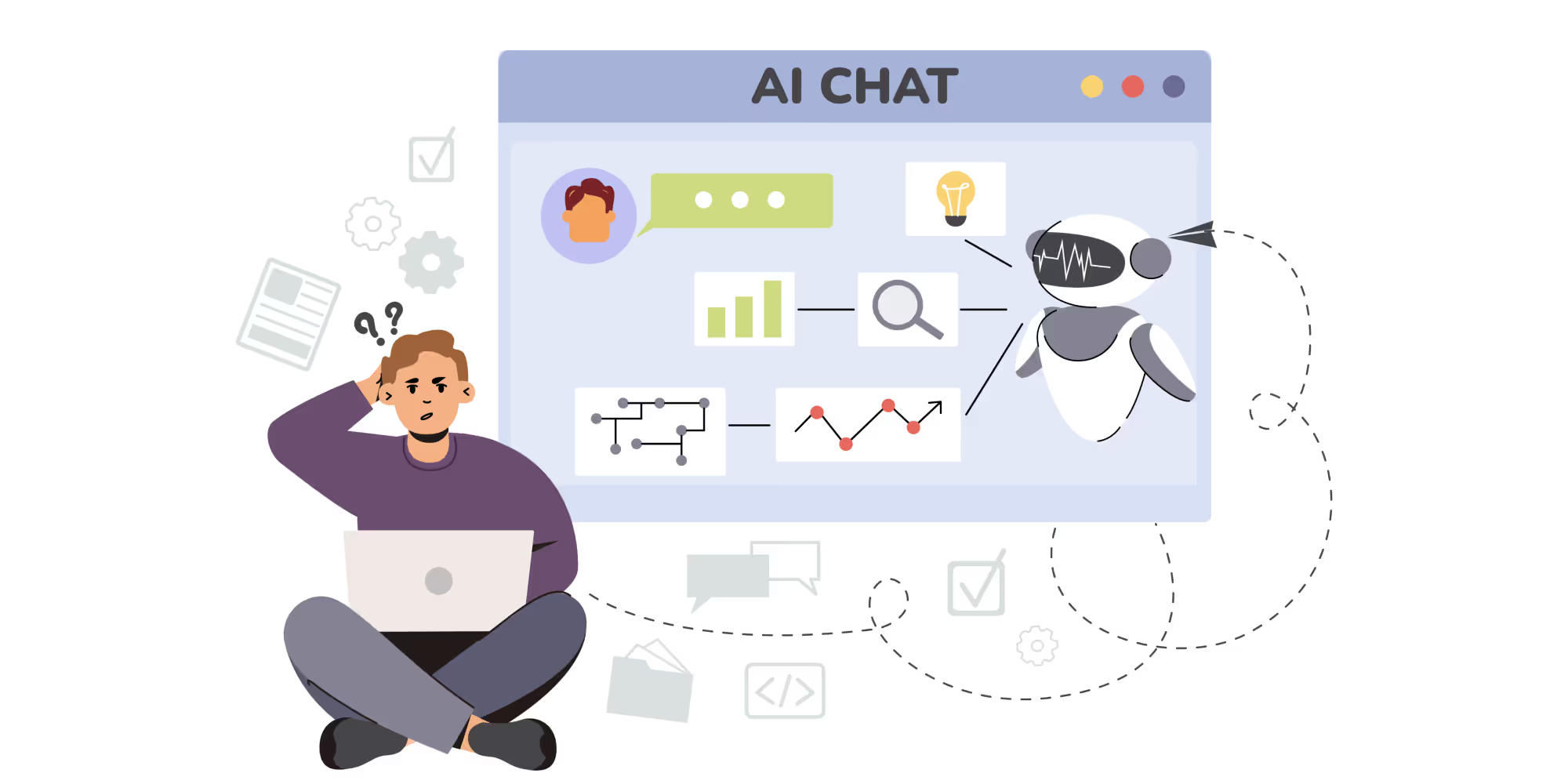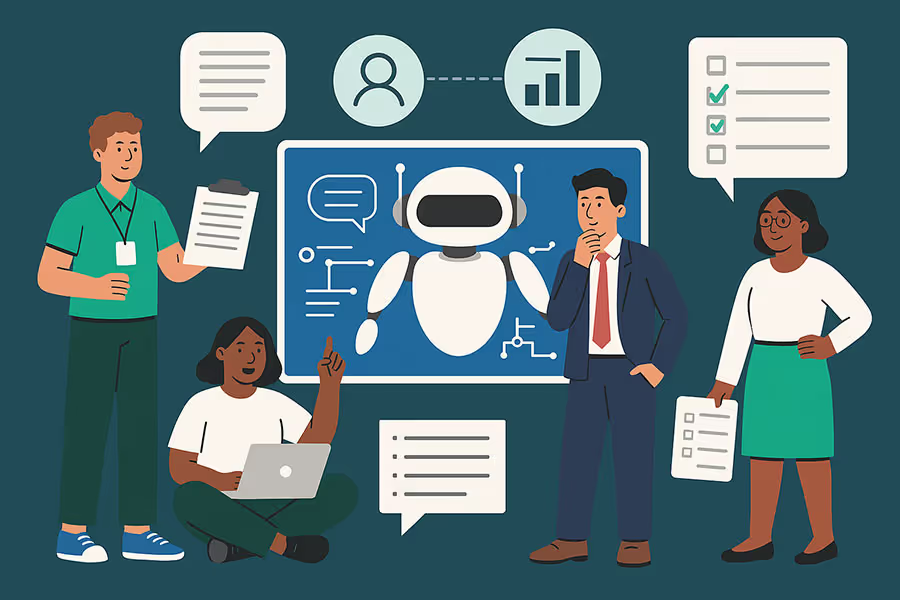
For decades, the conversation around artificial intelligence has been dominated by a single question: "Will AI replace my job?" While automation has changed many roles, a far more exciting shift is now underway. The focus has moved from simple automation to intelligent augmentation, ushering in an era of seamless collaboration between humans and AI agents.
This new model, a human-agent partnership, is about creating a synergistic relationship where both humans and AI contribute their unique strengths. It’s a strategic imperative for any organization looking to enhance productivity, accelerate innovation, and stay competitive.
The Shift from Automation to Augmentation
Traditional automation tools are rule-based, following a predefined set of rules. They are fast but lack the flexibility to handle complex situations. AI agents, in contrast, are autonomous systems that can understand context, learn, and make decisions to complete multi-step goals with minimal human intervention. When a human and an AI agent work together, they create a workflow that leverages the best of both worlds: human creativity and strategic thinking combined with the AI’s speed and data analysis capabilities.
The Core Benefits of Human-Agent Partnerships
This collaborative model delivers tangible benefits that go far beyond simple task automation.
- Massive Productivity Gains: AI agents efficiently handle repetitive tasks such as summarizing documents, researching data, and generating initial drafts. This frees up human employees to focus on high-level, creative work that truly drives value.
- Enhanced Decision-Making: By analyzing vast datasets in real-time, AI agents provide humans with instant, data-driven insights. This empowers professionals to make more informed decisions.
- Reduced Costs and Errors: Automating complex tasks minimizes the risk of human error and reduces operational expenses. AI agents can self-examine their work and correct errors, leading to higher accuracy.
- Scalable Personalization: AI agents can provide personalized support to customers or employees at an unprecedented scale without increasing human workload.
Real-World Applications in Action
Human-agent partnerships are not a distant concept; they are already transforming industries.
- Customer Service: AI agents act as the first line of defense, handling routine queries and providing instant responses. When a complex issue arises, the agent can seamlessly hand off the conversation to a human, providing a real-time summary of the conversation.
- Marketing: Marketing teams use AI agents to accelerate creative exploration. An agent can process competitor content and generate dozens of campaign variations in minutes. Human marketers then refine the best ideas and make strategic decisions.
- IT & Software Development: Developers use AI agents as co-pilots to streamline workflows. Agents can automate code review, run tests, and suggest code, allowing developers to focus on architectural design and problem-solving.
InterspectAI: Powering Human-Agent Partnerships
A prime example of this partnership is InterspectAI. Its core tool, Spectra, is an agentic AI interview platform designed to collaborate with human professionals in recruitment, legal, and market research. Instead of a human spending hours on screenings, they partner with the AI agent.
Here’s how the partnership works:
- The AI Agent's Role: Spectra autonomously conducts high-volume interviews, capturing video recordings, and generating instant assessments with automated scores and behavioral insights. It extracts all the data into a structured format, ready for analysis.
- The Human's Role: The human professional then uses the AI-generated insights to make strategic decisions. A recruiter can quickly identify the most promising candidates to focus on, while a market researcher can analyze a vast amount of qualitative feedback.
In this partnership, InterspectAI’s agent handles the operational side, while the human retains control and provides the critical judgment and expertise needed to act on the insights.
Navigating the Roadblocks
Human-agent partnerships come with challenges. The primary ethical concerns revolve around bias, transparency, and data privacy. AI systems are only as unbiased as the data on which they are trained. Additionally, the "black box" problem of AI requires companies to implement explainable AI (XAI) and ensure human oversight and transparency.
The integration of AI into the workforce presents a major challenge: adapting the human workforce to work with these new tools. The rise of AI agents will fundamentally reshape job roles, requiring companies to invest in reskilling and retraining their employees. The focus of future skills will shift from traditional technical abilities to human-centric competencies, such as strategic thinking, creative problem-solving, and emotional intelligence, which are essential for collaborating with and managing AI systems. This transition is not about replacement but about creating a synergistic relationship where AI handles routine tasks, freeing up human workers to focus on more complex, high-value activities.
Conclusion
A rivalry will not define the future of workflows, but rather a powerful and productive collaboration. By designing workflows that prioritize human-agent partnerships, organizations can unlock new levels of efficiency, drive innovation, and create a more engaging work environment. This is the new standard for how work gets done.
To see a human-agent partnership in action, schedule a demo with InterspectAI today and discover how to transform your workflows.
FAQs
1. What is the difference between a chatbot and an AI agent?
A chatbot is a rule-based system that responds to predefined queries. An AI agent is more autonomous, capable of understanding context and making decisions to achieve a goal.
2. How can a company get started with human-agent partnerships?
The best way is to identify pain points in existing workflows. Companies can begin with pilot programs to automate repetitive tasks, allowing teams to learn how to collaborate effectively with AI agents before scaling up.
3. Will AI agents replace human jobs?
AI agents are more likely to change jobs rather than eliminate them. They will automate the mundane parts of a role, allowing humans to focus on tasks that require creativity and empathy.
4. How can businesses ensure the ethical use of AI agents?
Companies must establish guidelines, regularly audit their AI models for bias, ensure transparency, and provide mechanisms for human oversight and review. This creates a foundation of trust and accountability.
Subscribe to The InterspectAI Blog


%201.svg)








